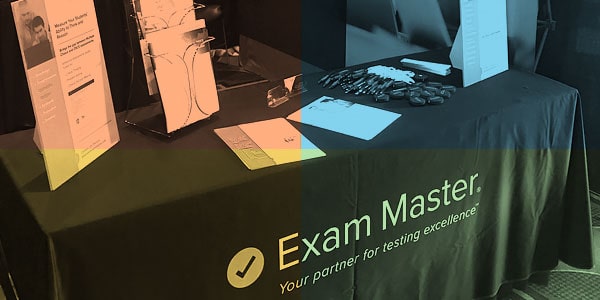What We Learned at the 2018 PAEA Education Forum

“Our Future Starts Now”
The theme of this year’s conference was “Our Future Starts Now” which is pretty much a true statement no matter what your perspective is. Of course, all of the stakeholders in the PA profession, including Exam Master, truly do need to keep an eye on the future of our health care system and the health care needs of our community and plan accordingly. Our focus, of course, is on the educational side of that focus, helping to prepare the health practitioners of tomorrow. There has been rapid growth in the number of new PA programs coming online with many more in the planning stages. This rapid growth is causing strain on the educational side of the profession, with possible lessons to be learned by seeing how rapid growth has affected other health disciplines such as pharmacy. We are also seeing an increasing number of PAs choosing specialties once they go into practice, a trend that may also have implications for our nation’s ability to meet its primary care needs. There is even evidence of growth in the PA profession overseas including Africa and India. Possibly not commonly known is that there exists in India the Indian Association of Physician Assistants (IAPA). The IAPA supports a small but growing cadre of practicing PAs in that diverse and culturally rich country.
What we learned
So, what did we learn while we were at PAEA? Well, we learned that with the growth in the number of PA programs, both new programs, and prospective programs coming online, there is a real shortage of available, experienced faculty talent. Newer programs are having to select faculty who may be experienced (and certainly dedicated) clinical PAs, but often who are not experienced educators. For new PA faculty who may have an educational background, we see evidence that the extent of their experience may be limited. Conversely, we see some evidence that programs are bringing on as faculty, PAs who may lack both extensive educational and clinical experience. While we would not call this a crisis, some have told us that it is, and the lack of a deep bench of educational talent for many PA programs presents some real challenges that are only likely to get worse over the next several years in particular. We all know that the educational mission of a PA program is to take bright, highly motivated students and mold them into competent clinicians and practitioners. We also know that the PA curriculum, typically 27 months on average, is very demanding. And while PA programs have flexibility as to the structure and sequencing of their curriculum, all programs must demonstrate that they are meeting all of their accreditation and program requirements. This goes way beyond just ensuring that the program achieves high PANCE passing rates or high graduation rates. Just as with the increasing use of data to measure clinical outcomes and guide clinical interventions, the health care system today requires evidence and data that educational outcomes are meeting program and accreditation objectives.
Developing Assessments
One area where we see new faculty struggle, in particular, is around assessments. We are in the business of assessments, and many faculty we interact with tell us that this is a real struggle for them. While there is a lot to consider when building a high quality, valid and useful assessment, the very first challenge area is simply developing a good test item. PA faculty (and other faculty, too) tell us this is an area of struggle for them, and not surprising since it is difficult to write good test items. We work with authors who have years of experience writing test items and they find it difficult and challenging. Our goal as we look to the future of PA education, therefore, is to do more to support new faculty, help develop and deliver better ways for programs to measure what their students know and can apply, and give faculty more time to do what they love: teach, guide and support their students.
